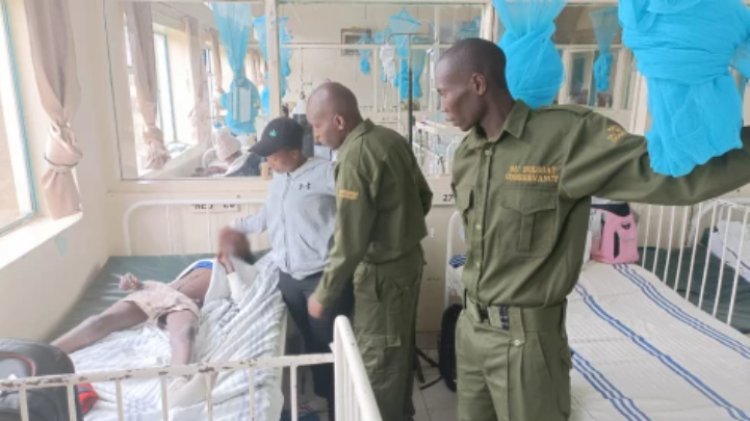Four People Hospitalized after an Attack by Wild Animals in Laikipia West.
Four people are being treated at the Nyahururu County Referral Hospital after being attacked by wild animals on different days last week in the constituencies of Ol-Joro Orok and Laikipia West.

Among them is a ranger who was attacked by marauding hippos in Kanguo village in Ol-Joro Orok, and another who was attacked by a stray elephant on his way home in Lorien village near Rumuruti forest in Laikipia West.
A 12-year-old boy is recovering from injuries sustained when he was attacked by a buffalo while herding cows in Thome village, Rumuruti district, Laikipia West.
The other patient, John Kiago, was mauled by a hippo on Saturday night as he went outside his house to see why his dogs were barking when he came across the hippo near Lake Ol-Bolosat.
He alerted his neighbors, who came to his aid, but in the process, a second man, also a ranger named Titus Mbuthia, was attacked.
The two were rushed to Nyahururu County Hospital, where they are currently being treated.
According to wildlife conservationists led by George Nguri of Lake Ol-bolosat Conservancy and his colleague James Onguti, the escalating cases of human-wildlife conflict were caused by prolonged drought, which forced the animals to flee their territories in search of pasture.
They did, however, warn residents in wildlife-infested areas to be alert and cautious, and to avoid coming into contact with the animals because they were dangerous.
Crops have been indiscriminately destroyed, and some people have been injured as a result of the attacks.
According to the conservationist, the conflict has also resulted in the deaths of 17 hippopotamuses near Lake Ol-Bolosat as a result of retaliation from the local community.
Since January of this year, at least 30 cases of hippo attacks have been reported in the area, with many more going unreported.
Residents are pleading with the government to intervene and address cases of human-wildlife conflict in order to prevent such incidents from occurring.


























